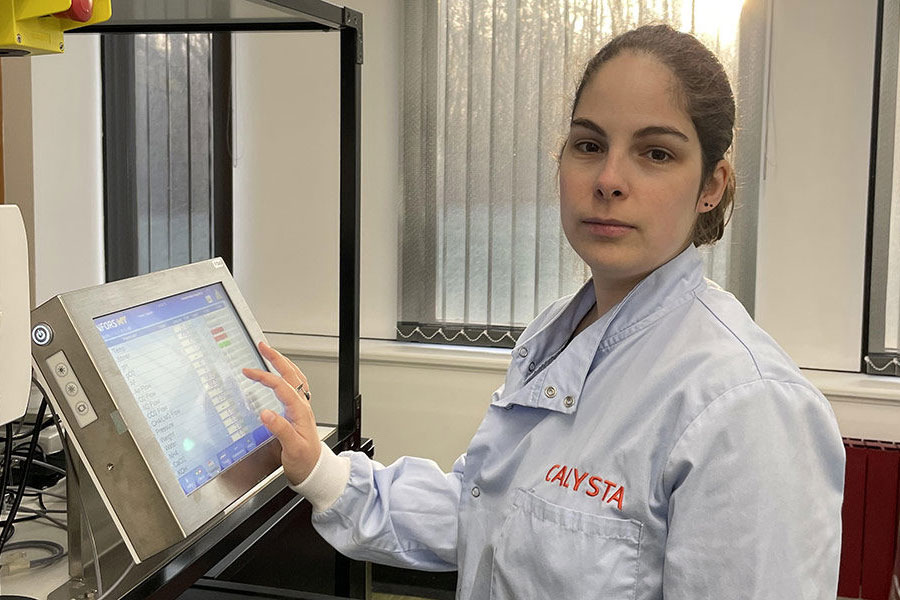Get to know Kamilla Bogát, Fermentation Scientist at Calysta
Can you describe the role of a fermentation scientist, including your responsibilities?
My main role as a Fermentation Scientist is leading the UK fermentation lab, designing, carrying out and analysing fermentations for experiments. Additionally, I am involved with the development of the fermentation process and material production. My role also includes a lot of background work ranging from documentation to health and safety to team communications. Alongside the UK lab, I am responsible for our pilot lab in China, and I am heavily involved with the Chongqing plant’s staff training and seed train commissioning (the process of cultivating bacteria in progressively larger fermenters to reach a target number of viable cells, enabling start-up of the production fermenter).
Every role at Calysta is as versatile as the individual. We always pitch in, working together to achieve our goals.
How did you get started in the industry? What did you study and what was your first job?
I studied biochemical engineering in Budapest. It was there I got a glimpse of every aspect the biotech industry could offer. Then I decided to do my master thesis in Gothenburg, working with Lactococcus lactis bacteria, and it was here I fell in love with fermentation.
My first job was with Calysta as a Fermentation Assistant, starting over 5 years ago. I have seen the team and company flourish, and I’m hugely grateful to be a part of the journey.
What have been your highlights or proudest achievement whilst working at Calysta?
My proudest professional achievement so far is the commissioning of our pilot lab in China. I took a leading role in training the team and we achieved great success despite doing it all online during the pandemic. I am of course looking forward to doing the same in Chongqing, especially in person this time.
My favourite company related time was the seafood expo in Brussels (2019), where I got to taste shrimp fed by FeedKind and saw people from all around the world do the same.
On a more personal note, I am proud to have mentored students at Calysta. Currently I am mentoring our apprentice, Lexie Scott, who is well on her way to becoming a brilliant scientist.
What most excites you about Calysta’s technology?
When I first read the job description, I thought “wait, what and how?”
Calysta awakened my scientific curiosity because the process of making food from natural gas sounded incredibly cool.
Sustainability is very important for me because my heart breaks thinking about the overuse of our natural resources. Calysta’s goal to replace fishmeal was one of the most attractive parts for me to take the job. I am excited to make Calysta’s process even more sustainable and work on wider applications in the feed and food space.
Who most inspires you?
My colleagues inspire me daily. Calysta has an enormous amount of talent in the team and my ultimate goal is to learn from all of them.
If you were stuck on a desert island and could only have with you one book, one movie and one song, what would they be?
For the book I would choose “How to survive on a desert island for dummies”, the film would have to be ‘Lord of the Rings’, and the song ‘One’ by Metallica, although I’m not sure how the film/song playing equipment would like the desert sand…
Do you have any advice for people wanting to pursue a career in fermentation science?
Go for it! There are so many different ways into science. You could be an apprentice and work your way up by learning from colleagues. You can learn from professors at universities. You can learn from supervisors during project placements. Fermentation is a mature technology as a whole, so there are many people available to learn from and be inspired by.
Back to journal